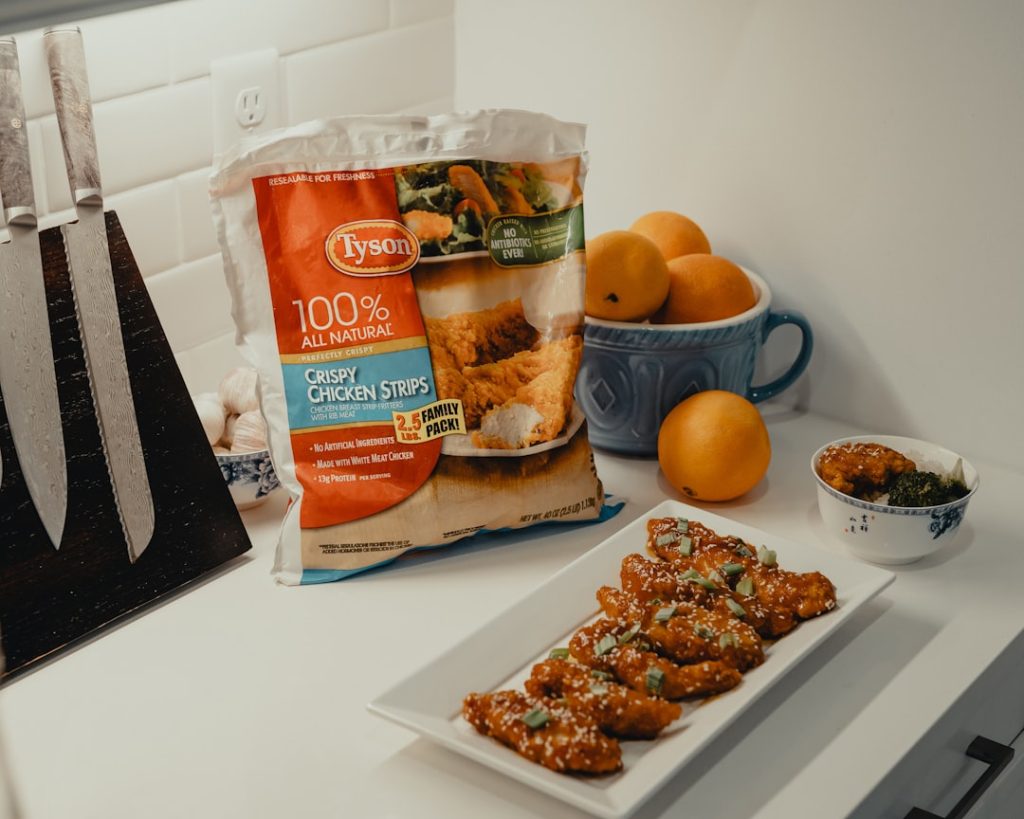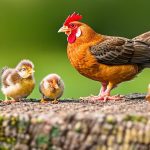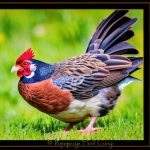Chick starter is a specialized feed formulated to meet the nutritional requirements of young chicks. It contains elevated levels of protein, vitamins, and minerals to support rapid growth and development during the first few weeks of life. The primary purpose of chick starter is to provide essential nutrients for strong bone, muscle, and feather development, while also supporting overall health and immune function.
The high protein content is particularly important for promoting healthy growth, feather formation, and digestive system development. Chick starter is available in both medicated and non-medicated forms. Medicated versions contain small amounts of medication, such as amprolium, to prevent coccidiosis, a common and potentially fatal intestinal disease in young chicks.
Non-medicated chick starter is suitable for chicks not at risk of coccidiosis. Selecting the appropriate type of chick starter is crucial for ensuring optimal growth and development based on the specific needs and health status of the chicks. Chick starter plays a vital role in providing young chicks with the essential nutrients required for thriving during their early stages of life.
Table of Contents
- 1 How Long to Keep Chickens on Chick Starter
- 2 Transitioning from Chick Starter to Grower Feed
- 3 Monitoring Chickens’ Growth and Development
- 4 Factors to Consider When Deciding When to Switch Feeds
- 5 Potential Risks of Keeping Chickens on Chick Starter for Too Long
- 6 Tips for Successfully Transitioning Chickens to a New Feed
- 7 FAQs
Key Takeaways
- Chick starter is a specialized feed designed to meet the nutritional needs of young chicks and support their growth and development.
- Chicks should be kept on chick starter for the first 6-8 weeks of their life to ensure they receive the necessary nutrients for healthy growth.
- Transitioning from chick starter to grower feed should be done gradually over a period of 1-2 weeks to avoid digestive issues.
- Monitoring the growth and development of chickens is important to determine when they are ready to transition to grower feed.
- Factors to consider when deciding when to switch feeds include the breed of the chickens, their growth rate, and their overall health.
- Keeping chickens on chick starter for too long can lead to excessive weight gain and potential health issues.
- When transitioning chickens to a new feed, it’s important to mix the new feed with the old feed gradually and ensure they have access to clean water at all times.
How Long to Keep Chickens on Chick Starter
The Importance of Chick Starter
Chickens should typically be kept on chick starter for the first 6-8 weeks of their life. During this time, they undergo rapid growth and development, and their nutritional needs are different from those of adult chickens. The high protein content in chick starter is essential for supporting the growth of strong muscles and bones, as well as for promoting the development of feathers and the digestive system.
Consistency is Key
It is important to provide chicks with a consistent supply of chick starter during this critical period to ensure that they receive the essential nutrients they need for healthy growth and development.
Transitioning to Grower Feed
After 6-8 weeks, chicks can be transitioned to a grower feed, which contains slightly lower levels of protein than chick starter but still provides the essential nutrients needed for continued growth and development. It is important to monitor the growth and development of your chicks during this transition period to ensure that they are thriving on their new feed.
Setting Up for Success
Overall, keeping chickens on chick starter for the appropriate amount of time is crucial for setting them up for a healthy and productive life.
Transitioning from Chick Starter to Grower Feed
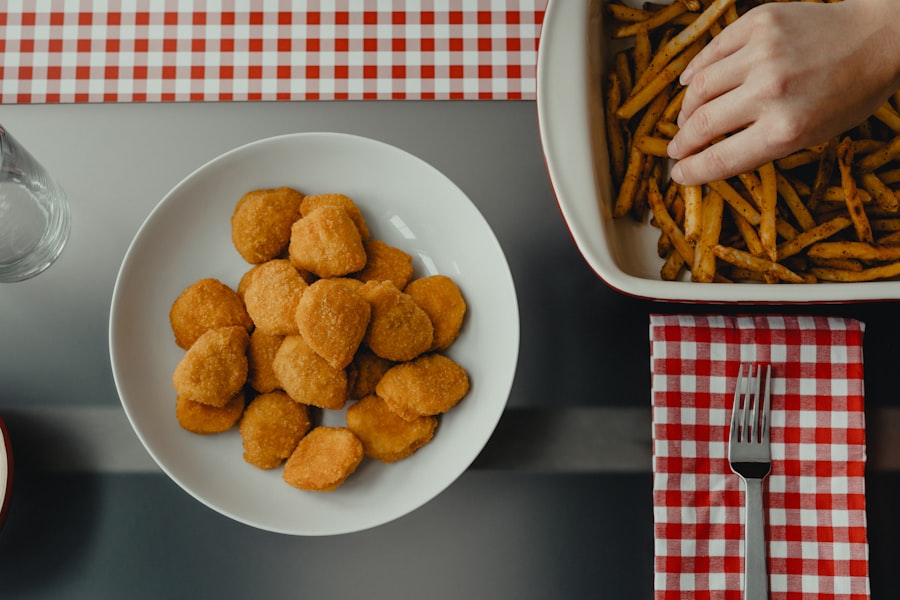
Transitioning from chick starter to grower feed should be done gradually over the course of a week or two to allow the chicks’ digestive systems to adjust to the new feed. Sudden changes in diet can cause digestive upset and stress for the chicks, so it is important to make the transition slowly and carefully. Start by mixing small amounts of grower feed with the chick starter, gradually increasing the proportion of grower feed over time until the chicks are fully transitioned to their new feed.
It is also important to provide plenty of fresh, clean water during the transition period to help the chicks adjust to their new feed. Hydration is crucial for supporting healthy digestion and overall well-being in chickens. Additionally, closely monitor the chicks’ behavior and appetite during the transition period to ensure that they are adjusting well to their new feed.
By taking a gradual and attentive approach to transitioning from chick starter to grower feed, you can help ensure that your chicks continue to receive the essential nutrients they need for healthy growth and development.
Monitoring Chickens’ Growth and Development
Monitoring your chickens’ growth and development is crucial for ensuring that they are thriving on their current feed and that their nutritional needs are being met. Keep an eye on their overall appearance, behavior, and appetite to assess their health and well-being. Healthy chickens should have bright eyes, clean feathers, and good energy levels.
They should also have a healthy appetite and be actively foraging and exploring their environment. In addition to visual cues, you can also monitor your chickens’ growth by weighing them regularly. Keep track of their weight gain over time to ensure that they are growing at a healthy rate.
If you notice any signs of stunted growth or poor development, it may be necessary to reassess their diet and make adjustments as needed. By staying attentive to your chickens’ growth and development, you can ensure that they are receiving the proper nutrition for healthy and productive lives.
Factors to Consider When Deciding When to Switch Feeds
When deciding when to switch feeds for your chickens, there are several factors to consider. The age of your chickens is a primary consideration, as different feeds are formulated to meet the specific nutritional needs of chickens at different stages of life. Additionally, consider the breed and size of your chickens, as larger breeds may have different nutritional requirements than smaller breeds.
Environmental factors such as temperature and housing conditions can also impact your chickens’ nutritional needs. During colder weather, chickens may require additional energy from their feed to maintain body temperature, while hot weather may increase their water intake. It is important to take these factors into account when determining when to switch feeds for your chickens.
Finally, consider the overall health and condition of your chickens when deciding when to switch feeds. If you notice any signs of poor growth or development, it may be necessary to reassess their diet and make adjustments as needed. By considering these factors, you can make informed decisions about when to switch feeds for your chickens to ensure that they receive the proper nutrition for optimal health and well-being.
Potential Risks of Keeping Chickens on Chick Starter for Too Long
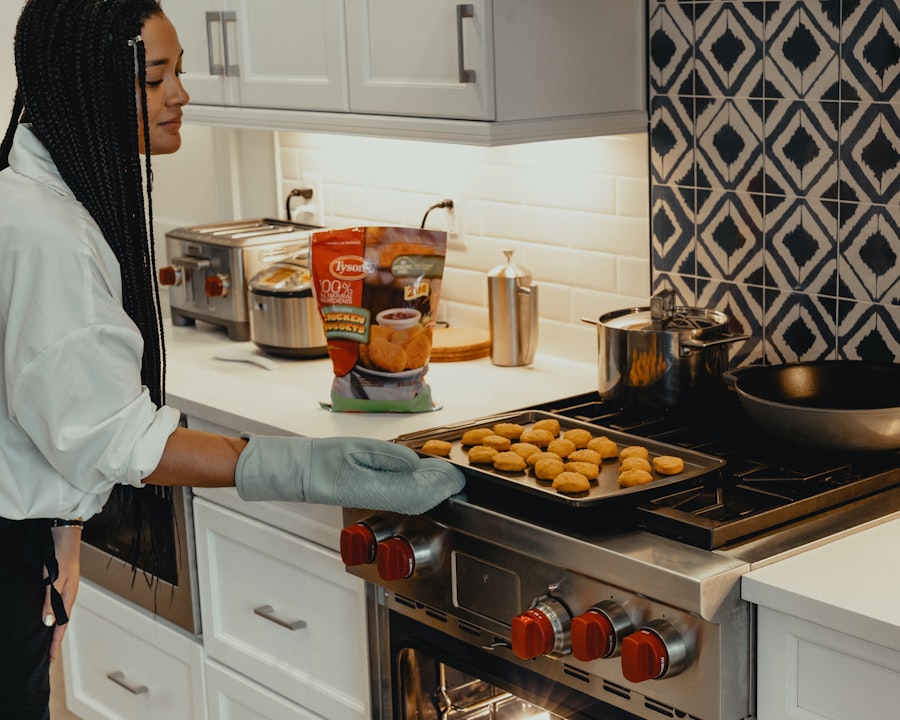
Health Risks
Keeping chickens on chick starter for too long can lead to several potential health issues. As chicks grow older, their nutritional needs change, and they require different levels of protein, vitamins, and minerals than what is provided in chick starter. A high-protein diet for an extended period can lead to excessive weight gain, which can put strain on their developing bones and joints. Prolonged exposure to high levels of certain nutrients, such as calcium, can lead to imbalances in their diet and may contribute to health issues such as kidney damage or urinary tract problems.
Importance of Timely Transition
It is essential to transition chickens to an appropriate feed at the right time to ensure that they receive the proper balance of nutrients for healthy growth and development.
Economic Implications
Keeping chickens on chick starter for too long can be costly and inefficient. As they grow older, they require larger quantities of feed, and chick starter tends to be more expensive than grower or layer feeds. By transitioning them to an appropriate feed at the right time, you can help ensure that they receive the proper nutrition while also managing your feed costs effectively.
Tips for Successfully Transitioning Chickens to a New Feed
Successfully transitioning chickens to a new feed requires careful planning and attention to detail. Start by gradually introducing small amounts of the new feed alongside their current feed, gradually increasing the proportion of new feed over time until they are fully transitioned. This gradual approach helps prevent digestive upset and allows the chickens’ digestive systems to adjust to their new diet.
Provide plenty of fresh, clean water during the transition period to support healthy digestion and overall well-being in chickens. Hydration is crucial for helping them adjust to their new feed and ensuring that they receive the essential nutrients they need for healthy growth and development. Monitor your chickens’ behavior and appetite during the transition period to ensure that they are adjusting well to their new feed.
If you notice any signs of digestive upset or poor appetite, consider slowing down the transition process or adjusting the proportions of new feed accordingly. Overall, successfully transitioning chickens to a new feed requires patience, attentiveness, and a gradual approach. By taking these steps, you can help ensure that your chickens continue to receive the essential nutrients they need for healthy growth and development while minimizing any potential stress or digestive upset during the transition process.
If you’re wondering how long to keep chickens on chick starter, you may also be interested in learning about whether geese can eat chicken feed. Poultry Wizard has an informative article on this topic, discussing the potential risks and benefits of feeding geese chicken feed. Check it out here.
FAQs
What is chick starter feed?
Chick starter feed is a type of feed specifically formulated for young chicks. It contains the necessary nutrients and protein levels to support the growth and development of young chicks.
How long should you keep chickens on chick starter?
Chickens should be kept on chick starter feed for the first 6-8 weeks of their life. During this time, they require the high protein levels and essential nutrients found in chick starter to support their rapid growth and development.
What happens if you keep chickens on chick starter for too long?
Keeping chickens on chick starter for too long can lead to excessive weight gain and potential health issues. Once the chicks reach 6-8 weeks of age, they should be transitioned to a grower feed that has slightly lower protein levels to support their continued growth without causing excessive weight gain.
Can you mix chick starter with other types of feed?
It is not recommended to mix chick starter with other types of feed, as the nutritional requirements for young chicks are specific and should be provided in the proper ratios. It is best to transition to a different type of feed when the chicks reach the appropriate age.
Meet Walter, the feathered-friend fanatic of Florida! Nestled in the sunshine state, Walter struts through life with his feathered companions, clucking his way to happiness. With a coop that’s fancier than a five-star hotel, he’s the Don Juan of the chicken world. When he’s not teaching his hens to do the cha-cha, you’ll find him in a heated debate with his prized rooster, Sir Clucks-a-Lot. Walter’s poultry passion is no yolk; he’s the sunny-side-up guy you never knew you needed in your flock of friends!

